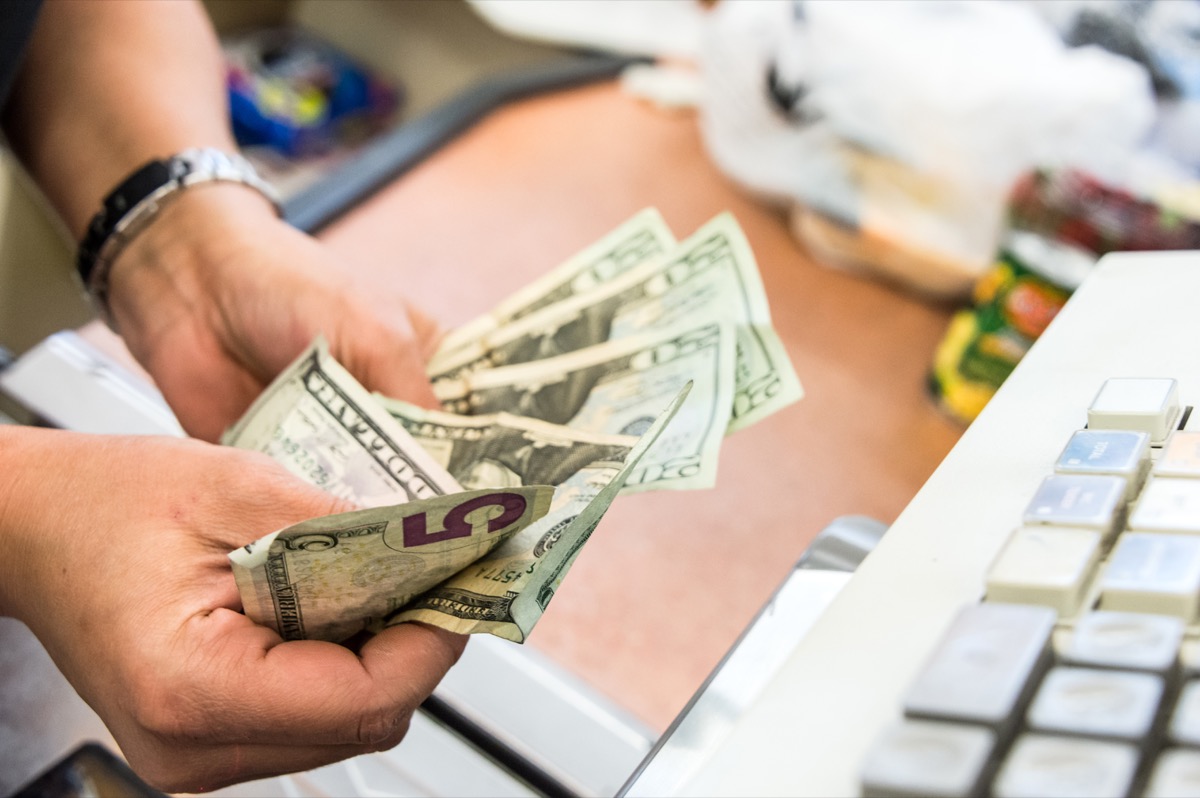An August survey of a little over 2,000 Americans conducted by Travis Credit Union found that more than half of the respondents (58 percent) think the country should move to a cashless system. And exactly half of the respondents admitted they were using less cash now than they were using prior to the coronavirus pandemic. But why is cash being exiled during the pandemic? According to an April study published in The Lancet, the coronavirus can survive on a banknote for up to four days. And Vandana A. Patel, MD, clinical advisor for Cabinet, a health essentials company, previously told Best Life that cash is even worse during the pandemic, because it is exchanged through many hands every day and not that easy to keep clean. Many people are turning to touchless payment or using a card form of payment because of this. Patel said that “you can sanitize a credit card easier than cash, while reducing the transfer of material from person to person.“ae0fcc31ae342fd3a1346ebb1f342fcb Fortunately, the Centers for Disease Control and Prevention (CDC) has reported that catching the coronavirus from touching items is not the most likely way a person would become infected. While it’s possible to become infected if you touch a contaminated item and then touch your eyes, nose, or mouth, COVID is mainly spread through person-to-person interaction. The fact that cash is unlikely to spread the coronavirus might be news to the survey respondents, however: 1 in 3 admitted that they weren’t using cash during the pandemic due to health concerns, and 1 in 2 acknowledged having actively avoided a situation that called for cash. When questioning the respondents, researchers gathered their general reasonings for going cashless. According to the respondents, 52 percent preferred using debit or credit over cash because of its “ease and convenience,” while 24 percent felt that it was safer than using money and 11 percent felt that it was more hygienic than money. RELATED: For more up-to-date information, sign up for our daily newsletter. And while 69 percent of the respondents said they foresee a completely cashless future, not everyone is so optimistic about these prospects. Out of the respondents, 7 in 10 admitted to worrying about having their privacy breached when using a debit or credit card, or when using a digital paying platform. This may be why 77 percent of the respondents still felt that all businesses should at least be required to accept cash when necessary. There’s also the fact that many people believe that cashless systems directly discriminate against low-income, homeless, and undocumented communities. It’s hard to imagine a future entirely without cash—but COVID has changed so many things already. And for more ways the pandemic may alter our future, The Pandemic Has Made This Life-Changing Decision Much More Common.
